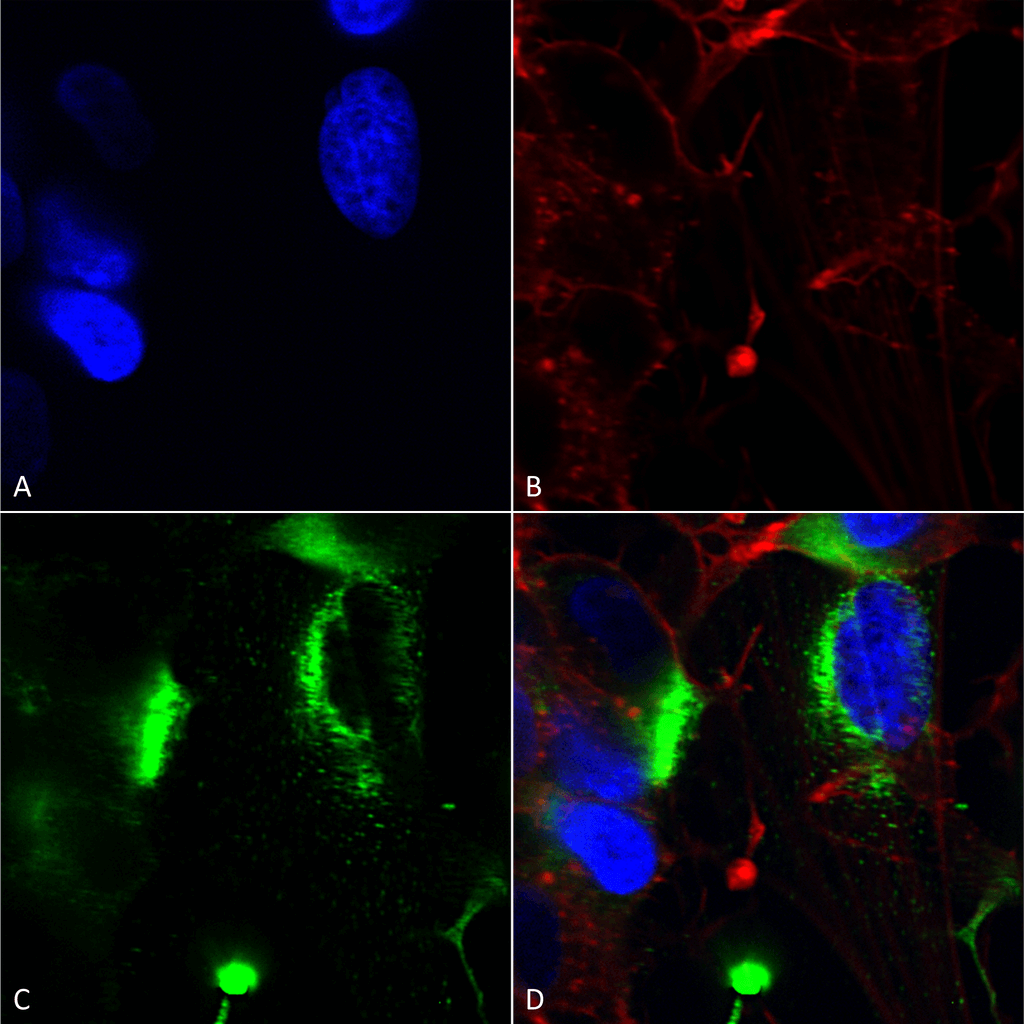QKI (pan) Antibody
QKI Antibody, Clone S147-6
- SPECIFICATION
- CITATIONS
- PROTOCOLS
- BACKGROUND

Application
| WB, IHC, ICC |
|---|---|
| Primary Accession | Q96PU8 |
| Other Accession | NP_006766.1. |
| Host | Mouse |
| Isotype | IgG2b |
| Reactivity | Human, Mouse, Rat |
| Clonality | Monoclonal |
| Description | Mouse Anti-Human QKI (pan) Monoclonal IgG2b |
| Target/Specificity | Detects ~36-38kDa. |
| Other Names | Protein quaking Antibody, Hqk Antibody, HqkI Antibody, QKI Antibody, KH Domain Containing Antibody, RNA Binding (QKI) Antibody |
| Clone Names | S147-6 |
| Immunogen | Fusion protein amino acids 1-341 (full-length) of human QKI-5. Mouse: 100% identity (341/341 amino acids identical). Rat: 99% identity (339/341 amino acids identical) >90% identity with QKI-6, QKI-7 and QKI-7b. |
| Purification | Protein G Purified |
| Storage | -20ºC |
| Storage Buffer | PBS pH 7.4, 50% glycerol, 0.1% sodium azide |
| Shipping Temperature | Blue Ice or 4ºC |
| Certificate of Analysis | 1 µg/ml of SMC-467 was sufficient for detection of Pan-QKI in 20 µg of rat brain lysate by colorimetric immunoblot analysis using Goat anti-mouse IgG:HRP as the secondary antibody. |
| Cellular Localization | Cytoplasm | Nucleus |

Thousands of laboratories across the world have published research that depended on the performance of antibodies from Abcepta to advance their research. Check out links to articles that cite our products in major peer-reviewed journals, organized by research category.
info@abcepta.com, and receive a free "I Love Antibodies" mug.
Provided below are standard protocols that you may find useful for product applications.
Background
QKI is also called Protein Quaking or HqkI. QKI is an RNA-binding protein that plays a central role in myelinization. QKI acts by regulating pre-mRNA splicing, mRNA export, mRNA stability and protein translation, and is itself, regulated by alternative splicing. QKI is expressed in the frontal cortex of brain, but is shown to be down-regulated in the brain of schizophrenic patients.
If you have used an Abcepta product and would like to share how it has performed, please click on the "Submit Review" button and provide the requested information. Our staff will examine and post your review and contact you if needed.
If you have any additional inquiries please email technical services at tech@abcepta.com.













 Foundational characteristics of cancer include proliferation, angiogenesis, migration, evasion of apoptosis, and cellular immortality. Find key markers for these cellular processes and antibodies to detect them.
Foundational characteristics of cancer include proliferation, angiogenesis, migration, evasion of apoptosis, and cellular immortality. Find key markers for these cellular processes and antibodies to detect them. The SUMOplot™ Analysis Program predicts and scores sumoylation sites in your protein. SUMOylation is a post-translational modification involved in various cellular processes, such as nuclear-cytosolic transport, transcriptional regulation, apoptosis, protein stability, response to stress, and progression through the cell cycle.
The SUMOplot™ Analysis Program predicts and scores sumoylation sites in your protein. SUMOylation is a post-translational modification involved in various cellular processes, such as nuclear-cytosolic transport, transcriptional regulation, apoptosis, protein stability, response to stress, and progression through the cell cycle. The Autophagy Receptor Motif Plotter predicts and scores autophagy receptor binding sites in your protein. Identifying proteins connected to this pathway is critical to understanding the role of autophagy in physiological as well as pathological processes such as development, differentiation, neurodegenerative diseases, stress, infection, and cancer.
The Autophagy Receptor Motif Plotter predicts and scores autophagy receptor binding sites in your protein. Identifying proteins connected to this pathway is critical to understanding the role of autophagy in physiological as well as pathological processes such as development, differentiation, neurodegenerative diseases, stress, infection, and cancer.


